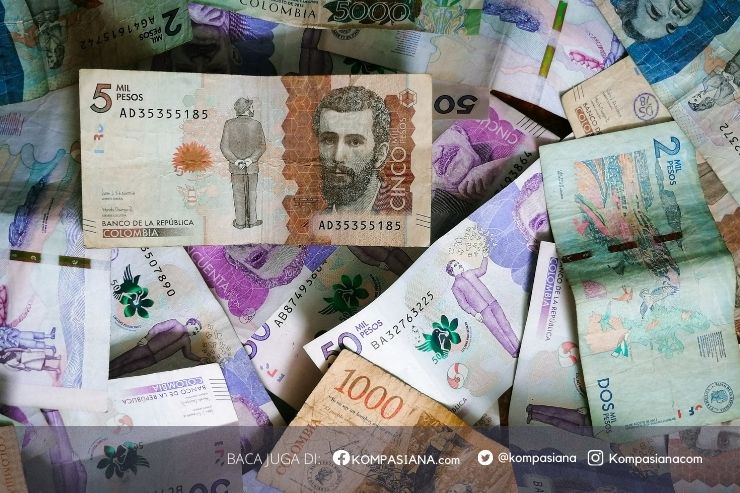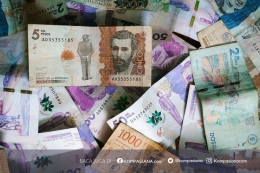Islamic banks in general, have a meaning as a financial institution whose business is providing credit and services in the field of payment traffic and money circulation whose operations use the sharia concept. So all activities and businesses in the bank will always be related to the issue of money which is their merchandise (Heri Sudarsono, 2003: 18-19).
Still discussing the meaning of Islamic banks, these Islamic banks operate by Islamic sharia principles whose main source are Al-Qur'an and Hadits. In practice, Islamic banks will avoid practices that contain elements of usury and replace them with investment activities based on profit sharing and trade financing. Rewards Islamic bank received and paid to customers depending on the contract and the agreement entered into the customer and the bank. Akad in Islamic banking should be qualified and pillars that have been regulated in Islamic law.
The general public has been able to distinguish between Islamic banks and conventional banks, other than that the community needs to know the elements that are banned in Islamic banking practices. These elements include:
- Usury, according to Wikipedia is the determination of the interest or exceeds the amount of the loan at the time of repayment based on a certain percentage of the principal loan charged to the borrower, and this is contrary to the principle of Islamic muamalah. In practice, this is often exemplified by the money obtained from loans or loaning moneylenders.
- Maisir, author Muhammad Ayub defines maisir as "hoping for something of value easily and without paying equal compensation for it or without working for it, or without undertaking responsibility for it using a game of opportunity". This practice is very similar to drawing darts and gambling.
- Gharar or taghrir is a term in the study of Islamic law which means doubt, deception, or action aimed at harming others. Gharar can be in the form of a contract that contains an element of deception because there is no certainty, either regarding the presence or absence of the object of the contract, the size of the number, or the ability to submit the object mentioned in the contract.
- Haram, some people already know that haram is the object of transactions that are prohibited in religion, both in terms of elements and methods of acquisition.
After explaining the meaning of Islamic banks and their elements, the question will arise how the role of Islamic banks in the national economy. Will be explained as follows:
1. Islamic banks as implementing social activities
It is precisely this social role that is more able to attract the attention of customers to prefer sharia banking products rather than conventional. One of the studies in Malaysia shows that Islamic banks are the dominant choice of customers because of the Islamic basis and the financial quality and services offered by Islamic banks, in addition to the factors considered important are good social functioning practices as well as convenience and decent products.
2. Financial service providers
The difference between conventional banks and sharia, which lies in the principle and system, does not preclude the role of Islamic banks to become financial service providers and payment traffic as is normal for banks. Most importantly there are no elements that are prohibited from shariah in practice.
3. Economic welfare and justice
Examples of transactions in conventional banks low-income savings and transactions in conventional financial institutions. He must be willing to cut his savings money for services that may not be charged by Islamic banks because it is not by the provisions of Islamic banks. In this case, Islamic banking takes the role of a banking industry that promotes justice, welfare, and economic equality. The government has realized that many conventional banking policies do not defend small people. That is why the government is also trying to develop Islamic banking units in the regions.
4. Halal Promotion
The existence of Islamic banking will encourage the growth of sharia entrepreneurs from micro to macro levels. In addition to promoting fair benefits in Islamic banking, the halal promotion will also increase investment because the benefits obtained are more transparent and equitable.
5. Initiator of Economic Business
All facilities provided by sharia banking will be a motivator for people who have the intention to do business. Business is defined as establishing a business entity or economic business unit that generates employment and income opportunities. That way the people's welfare will be lifted. An easy system in sharia banking for ordinary people to start their embodiment business immediately.
Thus the role of Islamic banks in Indonesia benefits both parties between Islamic banks and customers, so it greatly helps national economic growth and equity going forward. It can be concluded from the explanation that Islamic banks have a large role in the economic development in Indonesia. This is certainly very beneficial because it can improve the welfare of the Indonesian people.
Baca konten-konten menarik Kompasiana langsung dari smartphone kamu. Follow channel WhatsApp Kompasiana sekarang di sini: https://whatsapp.com/channel/0029VaYjYaL4Spk7WflFYJ2H








